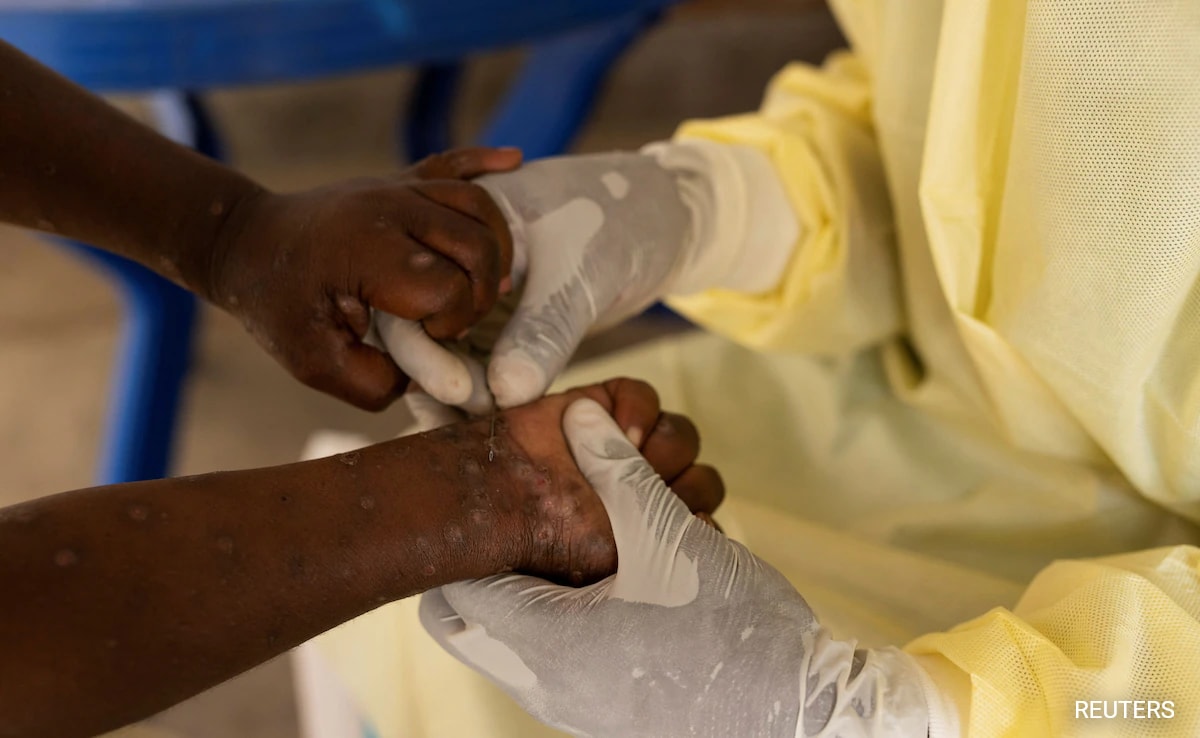The World Health Organization (WHO) said today that droplets were a “minor” route of transmission for mpox compared to physical contact, adding that more research is required to understand how the virus spreads.
The UN health agency declared mpox a public health emergency of international concern on August 14 amid a surge of cases across the Democratic Republic of Congo (DRC) and its neighbouring countries.
Mainly, two distinct clades of the virus, Ia and Ib, are causing significant concern in the DRC. A third variant, Clade II, originated in Nigeria and has been responsible for the global outbreak that began in 2022.
What is Mpox?
The mpox virus is an orthopoxvirus that causes mpox (monkeypox), a disease with symptoms similar to smallpox, although less severe, according to the WHO website.
What are the symptoms of Mpox?
FeverExtensive characteristic rash Swollen lymph nodesHeadacheBack pain and muscle acheLack of energy
The incubation period of mpox can range from 5 to 21 days. The febrile stage of illness (when fever persists) usually lasts 1 to 3 days, according to WHO. This is followed by the skin eruption stage, which can last for 2 to 4 weeks.
How does Mpox spread?
WHO has said that mpox spreads between people mainly through close physical contact with someone who has the virus. “Close contact includes skin-to-skin (such as touching or sex) and mouth-to-mouth, or mouth-to-skin contact (such as kissing),” it said.
However, WHO spokeswoman Margaret Harris said today that if a person with the virus had lesions, “if you’re talking closely to someone, breathing on them, physically close, face-to-face, there is a possibility” of viral spread, “but this is a minor source”.
“When you’re talking to somebody, you’re spitting out droplets,” but “it’s not a very major form of transmission — and it’s not a… through-the-air, long-distance sort of transmission,” she added.
The WHO recommends the use of facemasks for those with mpox, their close contacts and health workers treating them.
Does mpox have a vaccine?
Yes, there are vaccines recommended by WHO for use against mpox. However, only people who are at risk should get the vaccine. WHO has not recommended mass vaccination against mpox.
How has India prepared for a possible mpox outbreak?
India currently has no active mpox cases. The government had ordered the authorities in airports, ports and borders with Bangladesh and Pakistan to remain alert about incoming international passengers who show mpox symptoms.
The All India Institute for Medical Sciences (AIIMS) had issued protocols for handling suspected mpox cases in India. Various government hospitals were directed to set up isolation rooms for suspected and confirmed cases of mpox.
The institute has recommended setting up a screening process in the triage area wherein, upon arrival, patients with fever, rash, or a history of contact with confirmed mpox cases should be flagged for immediate assessment.
According to an assessment, the risk of a large outbreak with sustained transmission is low, officials had said.
(With inputs from AFP)














